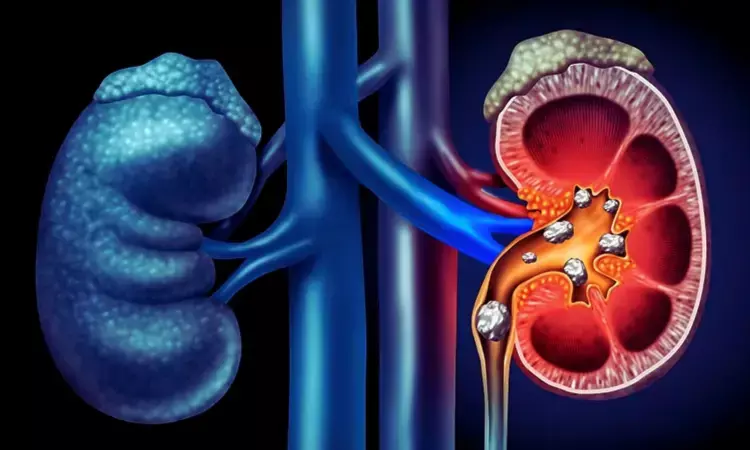- Home
- Medical news & Guidelines
- Anesthesiology
- Cardiology and CTVS
- Critical Care
- Dentistry
- Dermatology
- Diabetes and Endocrinology
- ENT
- Gastroenterology
- Medicine
- Nephrology
- Neurology
- Obstretics-Gynaecology
- Oncology
- Ophthalmology
- Orthopaedics
- Pediatrics-Neonatology
- Psychiatry
- Pulmonology
- Radiology
- Surgery
- Urology
- Laboratory Medicine
- Diet
- Nursing
- Paramedical
- Physiotherapy
- Health news
- Fact Check
- Bone Health Fact Check
- Brain Health Fact Check
- Cancer Related Fact Check
- Child Care Fact Check
- Dental and oral health fact check
- Diabetes and metabolic health fact check
- Diet and Nutrition Fact Check
- Eye and ENT Care Fact Check
- Fitness fact check
- Gut health fact check
- Heart health fact check
- Kidney health fact check
- Medical education fact check
- Men's health fact check
- Respiratory fact check
- Skin and hair care fact check
- Vaccine and Immunization fact check
- Women's health fact check
- AYUSH
- State News
- Andaman and Nicobar Islands
- Andhra Pradesh
- Arunachal Pradesh
- Assam
- Bihar
- Chandigarh
- Chattisgarh
- Dadra and Nagar Haveli
- Daman and Diu
- Delhi
- Goa
- Gujarat
- Haryana
- Himachal Pradesh
- Jammu & Kashmir
- Jharkhand
- Karnataka
- Kerala
- Ladakh
- Lakshadweep
- Madhya Pradesh
- Maharashtra
- Manipur
- Meghalaya
- Mizoram
- Nagaland
- Odisha
- Puducherry
- Punjab
- Rajasthan
- Sikkim
- Tamil Nadu
- Telangana
- Tripura
- Uttar Pradesh
- Uttrakhand
- West Bengal
- Medical Education
- Industry
Single-use versus reusable ureteroscopes yield similar outcomes in intrarenal surgery for urinary stones: Study

Brazil: A systematic review and meta-analysis published in Urolithiasis compared the performance of single-use versus reusable flexible ureteroscopes in retrograde intrarenal surgery for urinary stones.
The researchers found that both scopes demonstrated similar outcomes in operative time, stone-free rates, incidence of post-operative fever, and UTIs. The results indicate that the choice between the two hinges on factors, such as cost, availability, and surgeon preference.
Flexible ureterolithotripsy is a frequent urological procedure, usually used for stone removal from the kidney and upper ureter. For that procedure, reusable uretero-scopes were the standard tool, but recent concerns regarding sterility and maintenance and repair costs created the opportunity to develop new technologies.
The first single-use digital flexible ureteroscope was introduced in 2016. Since then, other single-use ureteroscopes have been developed, and studies compared them with reusable ureteroscopes and yielded conflicting results. Therefore, Mikhael Belkovsky, Surgical Technique & Experimental Surgery Department, Universidade de São Paulo, São Paulo, Brazil, and colleagues aimed to describe the literature that compares the performance of single-use and reusable flexible ureteroscopes in retrograde intrarenal surgery for urinary stones.
For this purpose, the researchers performed a systematic review in October 2022 according to the PRISMA (Preferred Reporting Items for Systematic Reviews and MetaAnalyses) and Cochrane Handbook. A search in online databases retrieved 10,039 articles. After screening, twelve articles were selected for the Meta-Analysis.
Based on the review, the researchers reported the following findings:
- No differences were found in stone-free rate (OR 1.31), operative time (MD 0.12), incidence of post-operative fever (OR 0.64), or incidence of post-operative urinary tract infection (OR 0.63 ).
- No differences were observed in the studied variables.
In conclusion, both scopes demonstrated comparable outcomes in operative time, stone-free rates, the incidence of postoperative fever, and UTIs.
"Hence, the device choice should rely on the cost analysis, availability, and surgeons' preference," the researchers wrote.
Reference:
Belkovsky M, Passerotti CC, Maia RS, de Almeida Artifon EL, Otoch JP, Da Cruz JAS. Comparing outcomes of single-use vs reusable ureteroscopes: a systematic review and meta-analysis. Urolithiasis. 2024 Feb 28;52(1):37. doi: 10.1007/s00240-024-01537-8. PMID: 38413490.
Dr Kamal Kant Kohli-MBBS, DTCD- a chest specialist with more than 30 years of practice and a flair for writing clinical articles, Dr Kamal Kant Kohli joined Medical Dialogues as a Chief Editor of Medical News. Besides writing articles, as an editor, he proofreads and verifies all the medical content published on Medical Dialogues including those coming from journals, studies,medical conferences,guidelines etc. Email: drkohli@medicaldialogues.in. Contact no. 011-43720751


